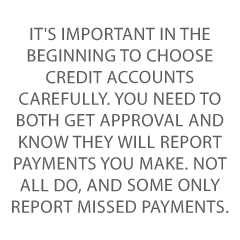What is Fundability™ and what on earth does it have to do with business loan denial? First, by its very definition Fundability™ is the ability to get funding.
If your business isn’t seen by a lender as Fundable™, you will not get loan approval. It’s not all about your credit report or credit score either.
There is so much more to approving a loan application than that. Good credit history is important, because of course they want to know you’ll make your monthly payments. However, your application has to make it to that point first. If the business isn’t set up to be Fundable™, it might not.
Loan Approval and Denial Issues
It can be incredibly disheartening to fill out a loan application and get a denial. Whether you apply at your local credit union or a traditional bank, they are going to pull credit reports just like with a personal loan.
The difference is, in addition to personal credit and financial information, they will want to see the credit history of the business as well. If your personal credit score is great you may be able to get a loan based on it alone, but it will most likely be considered a personal loan.
How Fundability™ Helps
Strong Fundability™, which includes a strong credit score for your business, will increase approval chances and the chances of getting better terms and lower interest rates.
Understanding why a lender denies an application can be helpful. There are many seemingly small details that can cause issues, and they are not likely to tell you what your specific problem is. So, it’s important to know what factors they consider other than credit.
A Tale of Two Credit Scores
You have two types of credit scores when you’re a business owner. Rather, you should have two types. You should have a personal one and one for your business. The truth is, many business owners do not even realize the second score exists.
The Two Are Not the Same
Sure, they may have some vague idea that their business has its own credit separate from their personal score. But, they think it just sort of happens. This is due to the fact that personal credit does just that. It just happens, passively, as you get and use credit.
Credit scores for business are completely different animals. You have to be intentional with both establishing and building it. You have to actively set up your business in a way that it will have its own score, and then seek out accounts that will report positive payment history so that your score grows. Not every account will do this.
Top Fundability™ Factors that Can Help You Avoid Loan Denial
There are at least 125 factors that affect the Fundability™ of a business, and they all make a difference when it comes to loan denial. However, here are the Top 5.
# 1: Good Personal Credit Can Help Business Prevent Loan Denial
Your personal credit score is still a part of this, even though it is separate from your business. It is affected by several factors. These include credit utilization and payment history. Even how many different types of accounts you have on your report can negatively impact your score.
How Can You Know What’s On Your Personal Credit Report?
You are entitled to a free credit report each year. Make sure to get it from each of the main credit bureaus. Check your free credit score, as it may provide some insight if you have a loan denied. Some apps offer a free peek at your score once a month also, so you can keep up with it during the year.
Beware of Hard Inquiries
In addition to the fact that most traditional lenders will check your personal credit, it can also affect your business credit. It is not unheard of for a business credit bureau to actually use your personal credit score in their calculation of your business credit score. Both Experian and FICO SBSS do this.
So, even if a credit provider only relies on business credit, your personal credit may still affect Fundability™.
#2: Good Business Credit Can Help Prevent Loan Denial
In contrast, payment history is the main thing that makes or breaks business credit. Get your credit report from each credit reporting agency, and check it carefully. You may find the score isn’t great or that it is non-existent because of many accounts not reporting positive payment history.
You will not find free access to your business credit reports. Yet, Credit Suite offers an ongoing monitoring package that is a fraction of the price that others charge.
Choosing the Right Accounts Is Important
It’s important in the beginning to choose credit accounts carefully. You need to both get approval and know they will report payments you make. Not all do, and some only report missed payments.
Credit Suite maintains a thorough and up-to-date database of vendors that report, along with what is required for approval. We can help you apply for the right ones at the right time to build business credit in the most effective and efficient way possible, saving you both time and money.
#3: Having a Fundable™ Foundation Helps Prevent Loan Denial
A Fundable™ Foundation includes:
- Having separate business contact information
- Getting an EIN
- Incorporating
- Opening a separate, dedicated business bank account
- Ensuring you have all licenses needed to operate legally
- Having a professional business website and email with matching URL
While none of these things guarantee loan approval, they are all necessary for Fundability™ and building business credit. So, a lack of these things can definitely result in loan denial.
#4: The Right Business Name Can Help Prevent Loan Denial
Imagine a lender looks at your loan application and see’s the name “Jack Sparrow’s Weed Dispensary.” While marijuana is legal in some states, it is pretty much universally considered a risky industry by lenders. That said, this name could get your loan denied before they even look at a single credit report.
Instead, just leave the part that indicates risk out. Just call it “Jack Sparrow’s.” At least you’ll get further along and avoid loan denial simply because of your business name.
But, you likely know already that your credit score is important when it comes to both getting a personal loan and trying to get business funding. Let’s look at some of the lesser known Fundability™ Factors that can cause, or prevent, loan denial.
#5: Consistency Is Key to Avoiding Loan Denial
In a lender’s mind, inconsistency is a red flag for fraud. It doesn’t take much. If your business information is not listed exactly the name everywhere they look, you may have a loan denial on your hands.
This includes something as small as using an ampersand in one place and the word “and” in another. Even a common misspelling can lead to big problems.
For example, if you list your business as “Joe and Bo’s” on the loan application, but the credit report says “Jo and Bo’s” or “Joe & Bo’s,” or anything at all different, you could be denied automatically.
Lenders spend a lot of time going through a potential borrower’s credit history. Most will not take the time to chase down and reconcile minor errors before they even get to the credit reports.
Remember the Basics
Of course, you always have to handle credit responsibly. Things like excessive credit card debt on your personal credit will always cause issues. Furthermore, if your business does not have the monthly gross income it needs to handle loan payments, approval isn’t likely.
The whole point of underwriting is to ensure your company can and will handle monthly debt payments, and monthly income is a big part of that. Some business owners use personal loans to fund their business until they get to that point. It’s best to avoid this if at all possible. You could end up with bad credit on the personal side and bad credit or no credit on the business side. It’s best to find a balance.
What Will Business Loan Underwriters Look At?
Underwriters will look at all sorts of things to determine loan eligibility. Of course, they will start with the application. Make sure it’s complete and accurate. Then, they’ll examine both your business and personal credit file.
Other Datae Underwriters Consider
It varies by lender, but one thing they may look at is the cash deposit history in your business bank account. Personal finance information may come into play if you do not have a lot of business finance history. That means potentially employment history, defaulted loans, late payments, and more can be fair game. A hard credit inquiry on your personal credit report related to this is possible as well, which will have a small negative impact.
Beyond Approval
If you get approval, this information will play a part in decisions related to interest rate and credit limit. Loan offers depend heavily on your financial situation, and each new loan will go through the whole process again. So, if you have been denied once, but have made all your loan payments on any other debt since then, you may not be denied the next time.
Credit Suite Can Help With Fundability™ to Help Prevent Loan Denial
There are a number of ways Credit Suite can help. First, we have trained business credit specialists that can walk you through each step of setting up a Fundable™ Foundation. Then, we can help you find the accounts you need to report payments so that your business credit score can grow.
As already noted, we offer business credit monitoring at a fraction of the cost, so you can see each step of the way how many accounts you have reporting and track your progress.
Not Just Fundability™, But Financing Too
In addition, we can help you find the funding you need right now. Our finger is on the pulse of the industry. We know which lenders are approving most frequently at any given time. We know which loan products you qualify for, and we can guide you as to which types of funding may work best for your business now and in the future.
Credit Suite has the Secret Sauce For Cooking Up Strong Fundability™ and Business Credit
Our team can give you long term strategies to help increase your chances of getting approved. We can show you how to apply for a loan in a way that will offer better odds by ensuring there is no missing information or inaccurate information.
As you qualify for more accounts, your business credit score will only grow. If you keep your finances in order, including keeping excellent credit, you will soon be eligible and get approved for credit cards and loans.
With the strong Fundability™ Credit Suite can help you build, you can get the funding you need, when you need it, now and in the future.


